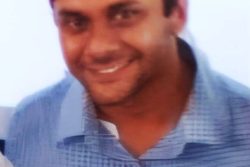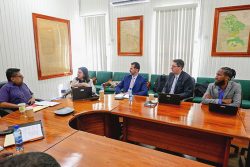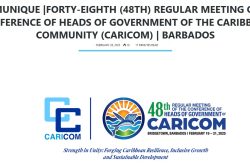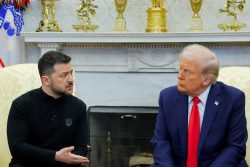The Guyana Human Rights Association (GHRA) today said that the December 30 intelligence operation that resulted in three deaths raises many good governance concerns and it called for a statement from the Ministry of the Presidency on all the “legitimate” questions posed.
The statement from the GHRA follows:
BLURRING LINES OF GOVERNANCE
The botched army operation that led to the tragic deaths of three people on Carifesta Avenue on December 30th is shocking and raises many questions regarding the extent to which good governance principles appear to be eroding. The existence of that operation suggests that lines between the Coalition Government, the army and the police force are becoming, once again, somewhat blurred. The goodwill that the Government has enjoyed from a range of citizens, well beyond active supporters of the APNU-AFC, is being tested by a perception that the Coalition is beginning to act as if the righteousness of a cause justifies disregard for established conventions and democratic procedures.
It is not re-assuring that President Granger seems to feel that once the Guyana Defense Force (GDF) is satisfied concerning the surveillance operation outside the home of the Director of NICIL, the many questions raised by civil society have no merit.
In a society where incompetent implementation frequently obscures original intention, the GDF is vulnerable to having well-meaning involvement in government perceived in more sinister terms. Furthermore, creeping expansion of the role of the military is encouraged by enmeshing anti-corruption into the counter-terrorism rhetoric. This development, prompted from abroad, is currently driving hasty re-alignment of Guyanese laws and financial institutions that far exceed domestic requirements.
Moreover, despite efforts to project the Special Organized Crimes Unit (SOCU) as required by the Anti-Money-Laundering and Combatting of Financing of Terrorism Act (AML-CFTA), this is not the case. SOCU was set up without recourse to Parliament in order to strengthen Guyana’s capacity to “investigate suspicious financial transactions that are suggestive of money laundering”, to quote the former Head of the Presidential Secretariat Dr. Luncheon in 2013. SOCU was then placed under the authority of the Guyana Police Force, not the Guyana Defence Force.
Furthermore, the most disturbing features of technical changes imposed in response to international pressure are the multiple opportunities they provide to suspend civil liberties and by-pass democratic processes. The current “Operation Dragnet” described as “a massive anti-crime and counter-terrorism operation” is a logical progression in this disturbing sequence, despite being airily passed off as “normal for the army to support the country’s law enforcement and regulatory agencies in operational activities”.
Political surveillance by civil authorities in well-established democratic societies is always a sensitive matter. In our context of rudimentary democratic traditions, inexperienced and zealous political leadership, surveillance by military authorities is an ominous development. Moreover, assurances would be welcome over the extent to which the shadowy electronic surveillance capacity established under the previous government, referred to as the Central Intelligence Agency, is being deployed in “Operation Dragnet”.
Such speculation is encouraged by the dominant priority assigned to the Government’s anti-corruption campaign which remains insulated from public scrutiny, marginalizing other policy discussions.
A broader discussion of military involvement would allay any disquiet that these activities fall within their traditional constitutional role of assisting the civil power in maintaining law and order, when required to do so.
In addition to the requirements of civil law in the cases of any untimely deaths, therefore, the multiple political and legal questions raised by the incident in question require a Parliamentary statement from the Ministry of the Presidency, referencing all the legitimate questions raised.
Public re-assurance would be further advanced with respect to all of the above were the Coalition Government to develop the practice of strengthening its capacities by engaging all sectors of civil society rather than by turning so readily to the military sector.









